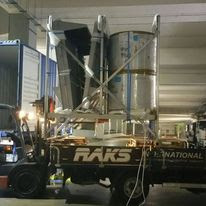Optimizing Freight Operations In 2023 With A Multi-Modal TMS
Multimodal shipping, sometimes referred to as intermodal transport, is the transfer of products by the carrier according to a shipping contract utilizing a variety of modes of transportation. These shipment methods include rail, sea, air, and land travel. You would merely employ a multimodal carrier, also known as a multimodal transport operator (MTO), if your consignment requires the utilization of numerous modes of transportation.
Different shipping kinds and transit methods are available to a Singapore forwarder service to aid in moving products from one location to another. Depending on the cargo and the area, they can combine several forms of transportation to make sure the items are delivered securely to their destination.
From Manual to Digital: Making the Switch to TMS Software for Small and Medium-Sized Businesses
Both of these goals are accomplished by TMS software
for freight forwarders, giving those that use it wisely a significant advantage
over the competition. TMS software automates the process of identifying the top
transport provider.
In the past, freight forwarders had to choose the appropriate transporter for each task manually. Keeping track of contracted prices required a lot of work and was prone to mistakes. Few freight forwarders have the extra staff needed to evaluate each transportation contract against the demands of every particular circumstance. Money is therefore left on the table.
The TMS software keeps track of contractual freight
rates and may automatically match the optimum freight rate based on the
specifications needed to complete a work. Based on the given parameters, the
TMS planning module presents proposed routes to the user. The user may then
assess the alternatives and make the sensible ones.
Boost overall visibility and control:
Sending a package involves some procedures. The
shipment operations must be completed by freight forwarders without any
problems. They must make sure that the correct shipment arrives at the
appropriate time for the correct recipient. The finest software for multimodal
transportation enables freight forwarders to organize and carry out multi-leg,
multi-modal international shipments by road, rail, air, and sea. All of the
workflows and procedures may be automated to cut back on time-consuming manual
labor.
Documentation centralization and streamlining:
Shipment documentation offers important information
and is essential to the supply chain industry. Organizations that offer Multi-Modal
services must deal with numerous papers, and it is difficult to trace each one
as it travels via several modes of transportation. Freight forwarders may
expedite the whole paperwork process and provide everyone involved quick access
to shipment information by using intermodal TMS software.
Reporting in advance for a full overview:
The ability to take action at the appropriate moment
is facilitated by clear, accurate reports. To help you make important business
choices, the best freight forwarder Singapore offers
a relevant, usable, and real-time view of several standard reports on your
shipments, operations, financial performance, etc.
Lower risks and shipment accuracy errors:
Workers in the freight forwarding company do a
variety of manual duties and procedures. Any repeated, manually inputted
procedure will occasionally be prone to mistakes. Because the staff is always
aware of the status of the cargo, intermodal TMS software gives you total
visibility and control over a variety of shipment modalities, which reduces the
risk of delays.
Mastering Your Supply Chain: A
Guide to Choosing the Right TMS System
Freight forwarders may control their whole network
from a single coordinated system with the use of transport management system
(TMS) software. Through simple visual displays, the whole transportation
chain—including clients, drivers, customs officials, and deliveries—can be
simply monitored. Customer support is a breeze because of TMS software's
integration with both client systems and traditional freight forwarder systems.
Freight forwarders are looking for methods to increase delivery times and
decrease costs as the freight market becomes more competitive.
The most advantageous freight forwarder TMS systems
are those that offer a user-friendly interface. Overly complicated or
cumbersome and sluggish software systems result in efficiency losses that
negatively affect the bottom line and customer satisfaction in a firm under
extreme time constraints.
TMS systems that are effective are crucial. Software
that automatically imports and adjusts contracted rates, for instance, frees up
time that may be used to grow the firm. Additionally, a user-friendly system
will offer a simple design for creating configurable analytics reports. This
makes it possible for managers to see the big picture while still focusing on
particular, which is a crucial way that freight forwarder TMS systems save
costs and boost business performance.
Many of the required tasks that do not immediately
increase profitability are automated by TMS software. The bottom line soon
increases when the labor expense associated with these duties is eliminated.
Additionally, the manpower previously used for these duties may now be
transferred to customer support, operations, and business development work,
each of which helps the company expand and improve efficiency. Future freight
forwarders that use TMS software to keep ahead of the competition will be
successful.
.jpg)


Comments
Post a Comment